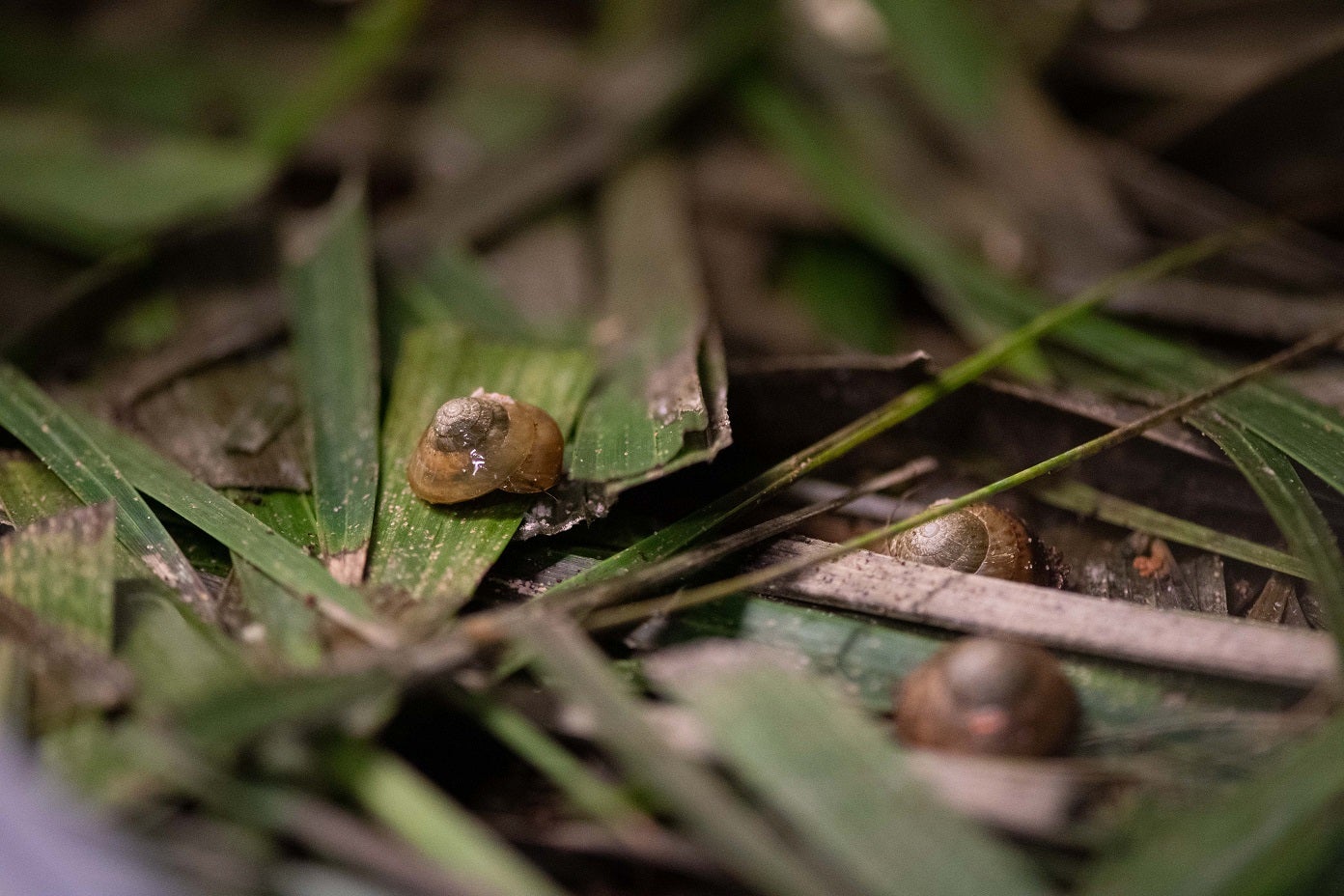Bermuda land snail comes 'back from the dead' after disappearing 40 years ago
Species thought to be extinct until man walks into office holding empty shell
Your support helps us to tell the story
From reproductive rights to climate change to Big Tech, The Independent is on the ground when the story is developing. Whether it's investigating the financials of Elon Musk's pro-Trump PAC or producing our latest documentary, 'The A Word', which shines a light on the American women fighting for reproductive rights, we know how important it is to parse out the facts from the messaging.
At such a critical moment in US history, we need reporters on the ground. Your donation allows us to keep sending journalists to speak to both sides of the story.
The Independent is trusted by Americans across the entire political spectrum. And unlike many other quality news outlets, we choose not to lock Americans out of our reporting and analysis with paywalls. We believe quality journalism should be available to everyone, paid for by those who can afford it.
Your support makes all the difference.The greater Bermuda land snail has been brought "back from the dead" by conservationists after it was believed to have become extinct 40 years ago.
More than 4,000 of the critically endangered snails are now being released back onto a remote Bermudian island after a breeding programme at Chester Zoo.
The mollusc was thought to have gone extinct until an empty shell was picked up by Alex Lines, a summer intern at the Bermuda Aquarium, Museum and Zoo, who brought it into the office in the territory’s capital, Hamilton, in 2014.
He found the shell in an alleyway behind a restaurant owned by his father. Mr Lines had some knowledge of snails and thought it might be something special so he showed it to Dr Mark Outerbridge, a wildlife ecologist for the Bermuda government who identified it.
A small population of live snails was then discovered in the dank alley behind the restaurant.
Fewer than 200 are currently estimated to remain in the wild, making them more rare than mountain gorillas and giant pandas. They are listed as critically endangered by the International Union for the Conservation of Nature (IUCN).
The greater Bermuda land snail (Poecilozonites bermudensis) – which only lives on the remote islands of Bermuda – was almost driven to extinction by predation from introduced species of carnivorous snails and flatworms.
Dr Gerardo Garcia, from Chester Zoo, said: “The Bermuda snail is one of Bermuda’s oldest endemic animal inhabitants. It has survived radical changes to the landscape and ecology on the remote oceanic islands of Bermuda over a million years but since the 1950s and 60s it has declined rapidly.”
The snails are being released on Nonsuch Island in Bermuda – an island nature reserve that is only accessed under strict protocols to prevent the unwanted introduction of alien species.

Dr Garcia said: “This is an animal that has been on this planet for a very long time and we simply weren’t prepared to sit back and watch them become lost forever when we knew we might be able to provide a lifeline.
“Now, following three years of intensive work, we’re thrilled and proud to say that we’ve reached a point in the project where snails are heading home.”
A number of the snails have been fitted with fluorescent tags so they can be tracked. This is set to be the first of many introductions as researchers found these snails are very prolific breeders in captivity – there are around 13,000 of them already.
Conservationists say the secret to their success is feeding them lots of sweet potatoes and lettuces, which are their favourite foods.
Dr Outerbridge said: “It has been tremendously gratifying for me to see them return to Bermuda for reintroduction.
“We have identified a number of isolated places that are free of their main predators and I am looking forward to watching them proliferate at these release sites.”

Join our commenting forum
Join thought-provoking conversations, follow other Independent readers and see their replies
Comments